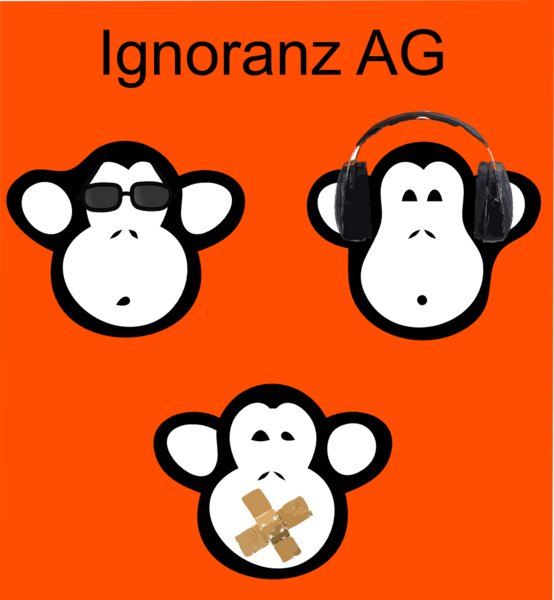|
|
Post by spozzy on Mar 29, 2003 18:12:18 GMT -5
First, some Kurds 101: Kurds Intro(kûrds, koords) , a non-Arab Middle Eastern minority population that inhabits the region known as Kurdistan, an extensive plateau and mountain area in SW Asia (c.74,000 sq mi/191,660 sq km), including parts of E Turkey, NE Iraq, and NW Iran and smaller sections of NE Syria and Armenia. The region lies astride the Zagros Mts. (Iran) and the eastern extension of the Taurus Mts. (Turkey) and extends in the south across the Mesopotamian plain and includes the upper reaches of the Tigris and Euphrates rivers. As of the late 1990s, there were estimated to be more than 20 million Kurds, about half of them in Turkey, where, making up more than 23% of the population, they dwell near the Iranian frontier around Lake Van, as well as in the vicinity of Diyarbakir and Erzurum. The Kurds in Iran, who constitute some 10% of its people, live principally in Azerbaijan and Khorasan, with some in Fars. The Iraqi Kurds, about 23% of its population, live mostly in the vicinity of Mosul, Kirkuk, and Sulaimaniyah. Ethnically close to the Iranians, the Kurds were traditionally nomadic herders but are now mostly seminomadic or sedentary. The majority of Kurds are devout Sunni Muslims. Kurdish dialects belong to the northwestern branch of the Iranian languages. The Kurds have traditionally resisted subjugation by other nations. Despite their lack of political unity throughout history, the Kurds, as individuals and in small groups, have had a lasting impact on developments in SW Asia. Saladin, who gained fame during the Crusades, is perhaps the most famous of all Kurds. source: www.encyclopedia.com/html/K/Kurds.asp |
|
|
|
Post by spozzy on Mar 29, 2003 18:14:07 GMT -5
History Commonly identified with the ancient Corduene, which was inhabited by the Carduchi (mentioned in Xenophon), the Kurds were conquered by the Arabs in the 7th cent. The region was held by the Seljuk Turks in the 11th cent., by the Mongols from the 13th to 15th cent., and then by the Safavid and Ottoman Empires. Having been decimated by the Turks in the years between 1915 and 1918 and having struggled bitterly to free themselves from Ottoman rule, the Kurds were encouraged by the Turkish defeat in World War I and by U.S. President Woodrow Wilson's plea for self-determination for non-Turkish nationalities in the empire. The Kurds brought their claims for independence to the Paris Peace Conference in 1919. The Treaty of Sèvres (1920), which liquidated the Ottoman Empire , provided for the creation of an autonomous Kurdish state. Because of Turkey's military revival under Kemal Atatürk , however, the Treaty of Lausanne (1923), which superseded Sèvres, failed to mention the creation of a Kurdish nation. Revolts by the Kurds of Turkey in 1925 and 1930 were forcibly quelled. Later (1937-38) aerial bombardment, poison gas, and artillery shelling of Kurdish strongholds by the government resulted in the slaughter of many thousands of Turkey's Kurds. The Kurds in Iran also rebelled during the 1920s, and at the end of World War II a Soviet-backed Kurdish “republic” existed briefly. With the overthrow of the Iraqi monarchy in 1958, the Kurds hoped for greater administration and development projects, which the new Ba'athist government failed to grant. Agitation among Iraq's Kurds for a unified and autonomous Kurdistan led in the 1960s to prolonged warfare between Iraqi troops and the Kurds under Mustafa al-Barzani. In 1970, Iraq finally promised local self-rule to the Kurds, with the city of Erbil as the capital of the Kurdish area. The Kurds refused to accept the terms of the agreement, however, contending that the president of Iraq would retain real authority and demanding that Kirkuk, an important oil center, be included in the autonomous Kurdish region. In 1974 the Iraqi government sought to impose its plan for limited autonomy in Kurdistan. It was rejected by the Kurds, and heavy fighting erupted. After the establishment of the Islamic Republic in Iran (1979), the government there launched a murderous campaign against its Kurdish inhabitants as well as a program to assassinate Kurdish leaders. Iraqi attacks on the Kurds continued throughout the Iran-Iraq War (1980-88), culminating (1988) in poison gas attacks on Kurdish villages to quash resistance and in the rounding up and execution of male Kurds, all of which resulted in the killing of some 200,000 in that year alone. With the end of the Persian Gulf War (1991), yet another Kurdish uprising against Iraqi rule was crushed by Iraqi forces; nearly 500,000 Kurds fled to the Iraq-Turkey border, and more than one million fled to Iran. Thousands of Kurds subsequently returned to their homes under UN protection. In 1992 the Kurds established an “autonomous region” in N Iraq and held a general election. However, the Kurds were split into two opposed groups, the Kurdistan Democratic party and the Patriotic Union of Kurdistan, which engaged in sporadic warfare. In 1999 the two groups agreed to end hostilities. In Turkey, where the government has long attempted to suppress Kurdish culture, fighting erupted in the mid-1980s, mainly in SE Turkey, between government forces and guerrillas of the Kurdistan Workers Party (PKK), which was established in 1984. The PKK has also engaged in terrorist attacks. In 1992 the Turkish government again mounted a concerted attack on its Kurdish minority, killing more than 20,000 and creating about two million refugees. In 1995, Turkey waged a military campaign against PKK base camps in northern Iraq, and in 1999 it captured the guerrillas' leader, Abdullah Ocalan, who was subsequently condemned to death. Some 23,000-30,000 people are thought to have died in the 15-year war. The legal People's Democracy party is now the principal civilian voice of Kurdish nationalism in Turkey. The PKK announced in Feb., 2000, that they would end their attacks, but the arrest the same month of the Kurdish mayors of Diyarbakir and other towns on charges of aiding the rebels threatened to revive the unrest. There were also clashes in the 1990s between the Kurds of Turkey and Iraq. source: www.encyclopedia.com/html/section/Kurds_History.asp
|
|
|
|
Post by spozzy on Mar 29, 2003 18:23:51 GMT -5
Kurds make up about 7-9% of Iran, 15-20% of Iraq, 20% of Turkey, and a certain % of Syria and Armenia. They are more or less indigenous to all these lands. These aren't Arabs, aren't Persians, aren't Turks...
Umm... why can't they have their own country? These are seriously a shafted people....
|
|
|
|
Post by MC Habber on Mar 29, 2003 20:49:58 GMT -5
|
|
|
|
Post by Cranky on Mar 29, 2003 21:59:17 GMT -5
Kurdistan? Sure.
The more "countries" you have in the region, the better. Iraq in three piece. Chunks of Iran in pieces. Turkey missing a chunk. Why not, they become more controlable and docile.
|
|
|
|
Post by spozzy on Mar 30, 2003 15:25:00 GMT -5
Kurdistan? Sure. The more "countries" you have in the region, the better. Iraq in three piece. Chunks of Iran in pieces. Turkey missing a chunk. Why not, they become more controlable and docile. Yeah, you're right. Forget the Kurds...   |
|
|
|
Post by M. Beaux-Eaux on Mar 30, 2003 17:24:33 GMT -5
Interesting piece spozzy. Thanks. I was aware of their history in general terms, but this filled in the blanks.
Though not within the scope of the current topic, it puts me in mind of the very similar situation of the Armenians.
|
|
|
|
Post by clear observer on Mar 30, 2003 17:34:15 GMT -5
Need a country? Do what the Brits do...steal one.  Couldn't resist. CO |
|
|
|
Post by spozzy on Mar 31, 2003 13:45:35 GMT -5
Need a country? Do what the Brits do...steal one.  Couldn't resist. CO Or French or Spaniards or Dutch or Portuguese or Russians or scores of other nations did HUNDREDS of years ago. A different time... |
|
|
|
Post by M. Beaux-Eaux on Apr 3, 2003 13:20:03 GMT -5
|
|
|
|
Post by Disgruntled70sHab on Apr 5, 2003 17:27:29 GMT -5
Dividing countries up without the concent of the countries that are losing territory never works. We're lucky enough to have established our boarders long ago, but some countries are still securing theirs. The Balkans are a good recent example of this.
After WW I the victorious allies saw it fit to carve the Balkans up the way they thought it should have been. Unfortunately, they didn't think to ask the Croats, Serbs, Bosnian Serbs, the Bosnian muslims, yadda, yadda, yadda ... For decades these people were made to live together against their own wishes and finally the Balkans blew in '91/'92. Mind you they were having problems well before WW I. Ducking form a snipers bullet on a runway, MGen (ret'd) Lew MacKenzie was asked by a reporter, "... who fired the first shot anyway?"
Mackenzie replied, "... some jerk 300 years ago ..."
In 1990 Hussein wanted Iraq's old province, Kuwait, back into the country proper. That province was taken away from Iraq in a previous conflict by foreign powers, similarily the way the Balkans were. Sure he had an alterior motive; he wanted the Kuwaiti oil fields back. But, he used this "... ex-province-of-ours ..." as an excuse to launch his attack.
Now we're talking about a Kurdistan. The Kurds can make a case all by themselves really. All they need do is look at the forming of Israel in 1948 as a benchmark for UN decisions. Besides, whether some wish to admit to it or not, Adolph Hitler was indirectly responsible for the establishing of Irsrael. The Kurds need only cite Hussein's atrocities and the shunning of them by other nations in order to compare with that.
But, who gives up what to make it happen? Will this have the potential for a future similar conflict as it was with Kuwait? Will they only have to worry about Iraq? How about Turkey? Creating a country's new boarder at the expense of a neighbour has the potential to be extremely volitaile.
Cheers.
|
|











